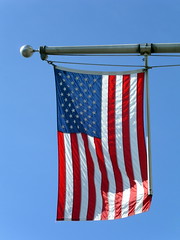 This year is 2011, which means that it has been ten years since the tragedy that happened in America on September 11, 2001. Where were you when those events occurred? Your descendants will want to hear your story. Now is a good time to record your experiences for future generations to find.
This year is 2011, which means that it has been ten years since the tragedy that happened in America on September 11, 2001. Where were you when those events occurred? Your descendants will want to hear your story. Now is a good time to record your experiences for future generations to find.
Genealogy is the study of family. Perhaps the most interesting part of what a genealogist can uncover in his or her research are photographs, and family stories. Sometimes, these stories are handed down from one generation to the next one. It is even better if you can find a journal or diary entry that was written by your ancestor. Old letters are excellent resources for finding family stories.
Genealogists may find that the most interesting family stories describe an ancestor’s experience during times of strive. There are several genealogical societies that only allow people to become members if they can prove that one of their ancestor’s was involved in a particular war. Some examples of this include the Daughters of the American Revolution, the Sons of the American Revolution, and Sons and Daughters of World War II Veterans.
Some of your relatives might have stories about where they were at when they learned that President Kennedy had been assassinated. Their personal experience is a snapshot of what many Americans were feeling that day.
Similarly, your story about where you were when you first learned about the events that occurred on September 11, 2001, encapsulate what people all across America were feeling that day.
You might be a gifted storyteller, or a talented writer, who is ready for this task. If you have no idea where to start, there is advice to be found online. There is a website and podcast called “Create Your Life Story”. It can give you tips about how to record, edit, and potentially even publish, your life story. You can extrapolate from this information how to use it to record your story about your experiences on 9 -11.
You might think that your story about what you were thinking and experiencing on September 11, 2001, is not very important. Perhaps you didn’t lose a loved one, and did not live in New York City at the time that the planes crashed. Even so, your descendants are going to be really interested in learning about your story, just like you get excited by finding an ancestor’s journal, diary, or handwritten letter. You may want to gather the stories of the experiences of several of your relatives on that day, in addition to your own story.
Image by Stefano Brivio on Flickr

